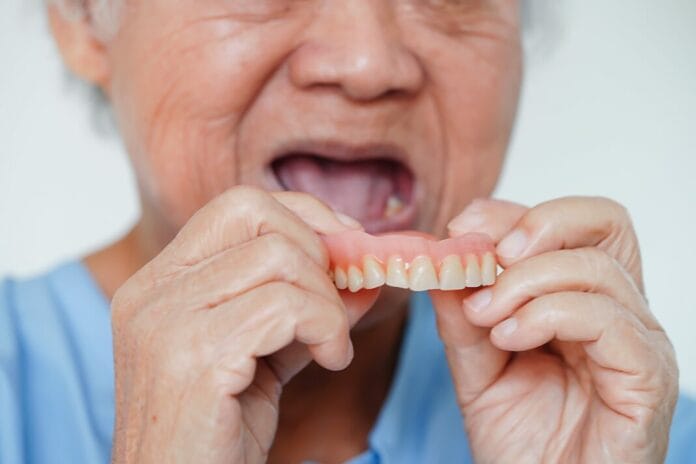Improvements in dental care with a shift toward prevention, coupled with an aging population and the societal emphasis on maintaining a healthy smile, have led to people retaining their natural teeth longer. This has also increased the demand for restorative dental work, such as crowns, bridges, and implants.1
Despite these advancements, many individuals still find these treatments financially out of reach due to the limited access to care and the high cost of dental care. Consequently, removable dentures remain the most accessible solution for those experiencing tooth loss, with an estimated 10 to 15 percent of the population relying on them.1
A study by researchers at the University of Sheffield’s Healthy Life Span Institute and the School of Clinical Dentistry highlighted the emotional challenges and hidden difficulties patients face when getting dentures. This research is the first to thoroughly map the patient journey and examine how these experiences impact the success of denture treatment.1
The Study
This multi-method qualitative study drew on narrative interviews, targeted participant observation, and a focus group. The study identifies four distinct stages in the denture journey:1
- Tooth loss: The initial stage involves the physical loss of teeth, marking the beginning of the denture journey.
- The emotional tunnel: This stage encompasses the emotional turmoil associated with tooth loss. Patients often experience a range of emotions, including self-consciousness, depression, shame, anger, fear, and hope, as they adapt to dentures.
- Prosthetic hope: In this stage, patients feel hopeful and optimistic about regaining their smile and the ability to eat normally with the help of dentures.
- Prosthetic compromise and managing disclosure: The final stage recognizes the adjustment period required to get used to dentures. Patients must manage their expectations and learn to speak and eat with dentures. They also develop strategies to feel comfortable disclosing their denture use to others.
These stages and the emotions associated with them significantly influence patient outcomes. The study emphasizes the importance of dentists showing empathy during this adjustment period to enhance the success of denture use and improve patient outcomes.1
The Results
The study highlights that wearing removable dentures can be a hidden disability for many. Denture wearers often feel embarrassed or fear their dentures might slip or fall out, leading some to avoid social situations altogether.1
Professor Barry Gibson, the lead researcher and a Professor in Medical Sociology at the University of Sheffield, explained, “Tooth loss can be hugely traumatic, and this study has uncovered just how challenging it is for people needing partial dentures. Feelings such as embarrassment or shame can significantly affect the process of having dentures made and fitted. If dentures don’t fit properly, it can make everyday activities such as speaking, eating, and drinking very difficult, which affects a person’s quality of life. The impact can be so dramatic that it can affect their confidence to leave the house, leading to a devastating and lasting impact.”2
First-time denture wearers were especially vulnerable as they reported being unprepared for living with dentures. This indicates the need for more patient-centered education and posttreatment care.1
This collaboration has led to the development of a new patient questionnaire designed to:1
- Identify individual needs: Tailor care based on specific patient experiences.
- Improve communication: Facilitate open conversations between dentists and patients about dentures.
- Trigger follow-up: Identify patients who may need additional support.
Conclusion
The study underscores the necessity for a comprehensive clinical care pathway to better support patients who wear dentures. This includes focusing on improving denture fit, educating patients about denture care, and addressing the shame and stigma associated with wearing dentures. By understanding the emotional challenges identified in the study, dental professionals can enhance the care provided to patients who wear dentures, resulting in more successful and positive experiences for all involved.1
Before you leave, check out the Today’s RDH self-study CE courses. All courses are peer-reviewed and non-sponsored to focus solely on high-quality education. Click here now.
Listen to the Today’s RDH Dental Hygiene Podcast Below:
References
- Gibson, B.J., Baker, S.R., Broomhead, T., et al. ‘It’s Like Being in a Tunnel’: Understanding the Patient Journey From Tooth Loss to Life With Removable Dentures. J Dent. 2024; 145: 104964. https://www.sciencedirect.com/science/article/pii/S0300571224001349
- University of Sheffield. (2024, June 6). Hidden Challenges of Tooth Loss and Dentures Revealed in New Study. ScienceDaily. www.sciencedaily.com/releases/2024/06/240606152301.htm











